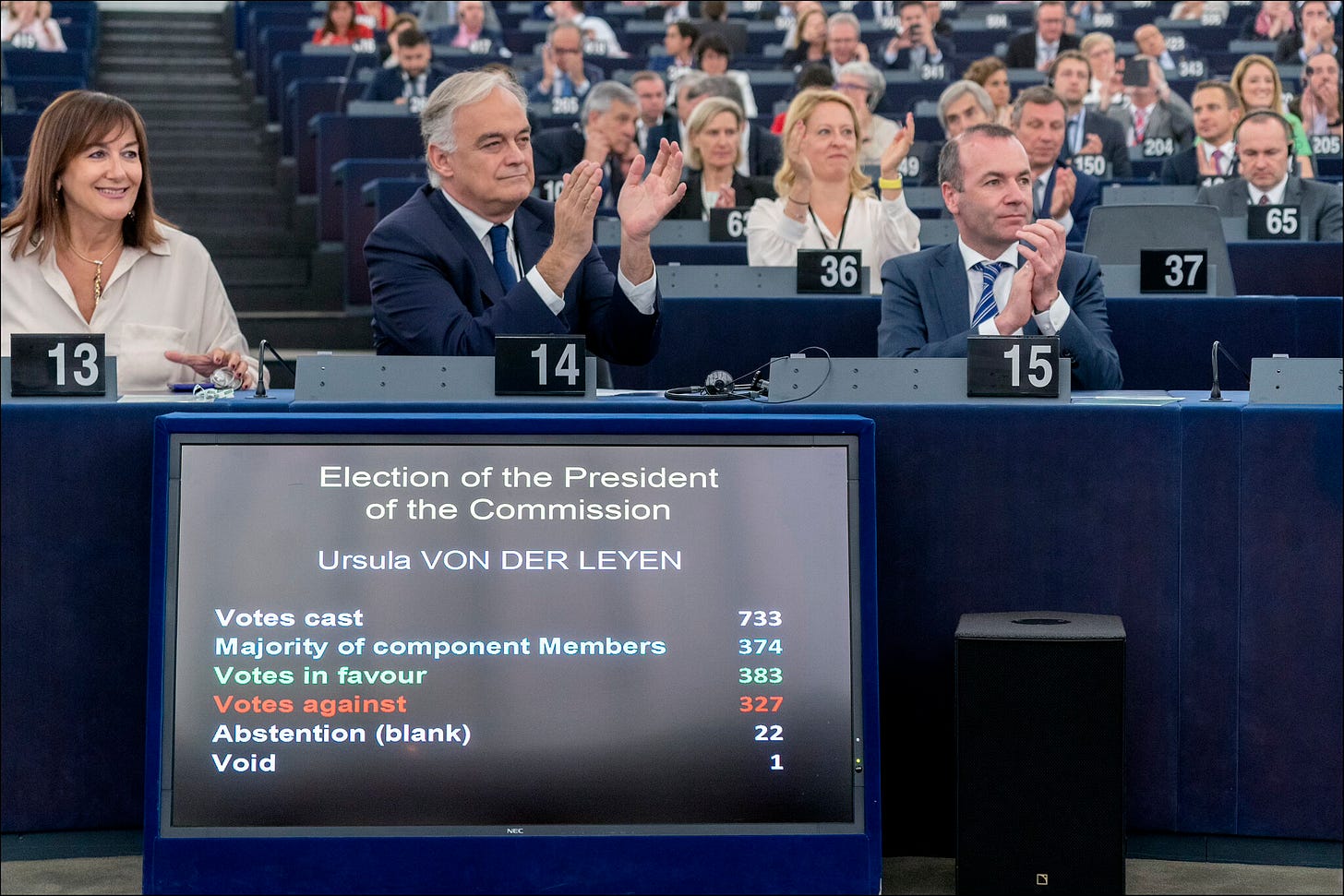The Shakedown
The European Commission’s decision last Thursday to unblock 10 billion euro for Hungary was met with widespread outrage. From the ranks of the leadership of the European Parliament, however, there was conspicuous silence. A bit of grumbling yes, but more as a formality than as actual indignation. The European Commission is in flagrant breach of the Treaties. President Von der Leyen for her part has broken the key promise on which she has been elected. Once again, the European Parliament dramatically fails in its duty of holding the European Commission to account.
Let’s disect the situation a bit.
On the substance: Hungary has billions in EU funds frozen, because of the systematic destruction of the rule of law by the country’s long-ruling Orbán regime. The European Commission claims that the Hungarian government has reached four so-called ‘milestones’; reforms intended to restore the rule of law. Therefore a part of the frozen EU funds can be released. The reality, according to virtually all independent analysts (for example by Verfassungsblog), is that the milestones have not been (fully) met. That in any case the legislative reforms have been skillfully designed in such a way that little to nothing will change in practice. The European Commission chooses to ignore this reality, because Orbàn had to be bribed into support for Ukraine. The Commission decision is a slap across the face of all those who are valiantly defending democracy against attacks from kleptocrats and authoritarian leaders, and it will embolden Orbàn and a growing army of mini-Orbàns. The European Commission has to immediately and fully publish its detailed assessment of the reforms, so that public scrutiny is possible.
Secondly on the timing: the Commission claims it is sheer coincidence that the decision was taken one day before Orbàn was expected to block important decisions at the European Council. Literally nobody believes this, but let’s imagine this were true. In that case, Von der Leyen has incredible bad timing with very little understanding of the political fallout. Assuming she has sincerely come to her conclusion, independent of Orbán’s blackmail, she should have waited until after the Council Summit.
Thirdly on the tactics: giving in to the extortion of Orbàn, before having secured his vote in the European Council on all the Ukraine stuff was a spectacularly stupid miscalculation. By giving up any leverage the EU might have had, the institutions are once again open to blackmail. Ukraine pays the price of this stupidity.
Fourthly on constitutional aspects: the decision by the European Commission, and the timing of that decision, were very evidently meant to serve the European Council. The European Commission acted on behalf of, and in the interest of the European Council. This is a most serious breach of the Treaty requirement of independence of the European Commission. Not for the first time. In the European Council conclusions of December 2020, the European Commission equally appeared to takes instructions from the European Council. The European Parliament could have challenged that fact in court, but failed to do so, from a completely misguided submissiveness to Commission and Council.
Fifhtly on the political dimension: in 2019 Von der Leyen was elected by the European Parliament on the explicit promise that the rule of law would be a top priorities. The rule of law was one of the main topics in exchanges with then-candidate Von der Leyen. Therefore we may conclude that her commitment to this essential building block of the EU order was a core component of the vote of confidence. With this week’s decision, Von der Leyen has broken her promise and thus toppled one of the pillars upholding the confidence vote. Parliament should therefore withdraw its confidence and ask her to resign. This does not even require a motion of censure, as Parliament can simply call for the resignation of an individual Commissioner, in this case the President.
Von der Leyen is elected president of the European Commission, after having promised to uphold the Rule of Law
In conclusion: the Commission decision is a huge error in many respects, legal and political. However, as so many times before, the European Parliament fails to do its duty of holding the Commission to account. Parliament’s leadership is behaving like the claque of Von der Leyen and the European Council, rather than as a democratic watchdog.
The Greens meanwhile have called for the umpteenth resolution about Hungary and the rule of law, to be put on the January agenda. But that proposal completely misses the point. This is not about Orbàn, but about the failure of parliamentary democracy in the EU institutions. There has always been massive opposition in Parliament against the payments to Orbàn without the milestones having been met. But expressing indignation and warning the Commission not to make any payments are hollow, if there are no consequences for ignoring the calls from Parliament.
If Parliament does not react, it loses its credibility.



